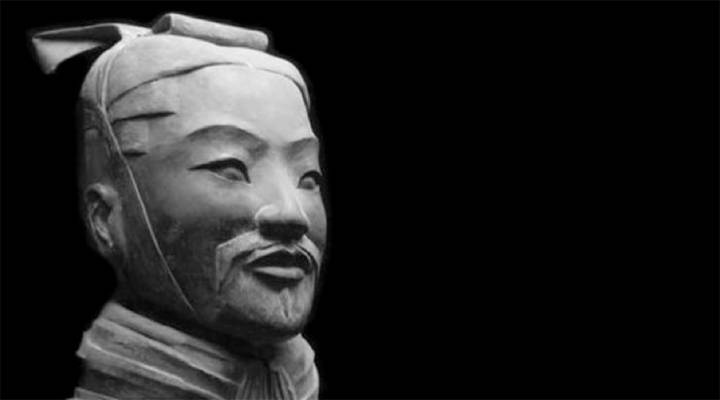The most intellectual commander of the past: who is Sun Tzu?
Sun Tzu, was one of the most important commanders of the Ancient Chinese Civilization, BC. He was born in the first half of the 6th century. Only three of the 10 works written by Sun Tzu, who is also a philosopher, have survived.

The most important of these works is the book called The Art of War. In this book, Sun Tzu dealt with all aspects of warfare, and detailed topics such as military tactics, knowing the enemy, and the chain of command.
The Art of War, written by Sun Tzu about 7 centuries ago, is still used as a textbook in military schools. The Art of War has been the best-selling strategy book worldwide to date.
Sun Tzu's exact date of birth is unknown, but it is estimated that he was born between 540 and 545 BC. Described as a "military genius" in many sources, Sun Tzu is the commander of the Qi Principality.
In his book The Art of War, he gives detailed information on how a commander should treat soldiers and manage the war process.
The Art of War, written by Sun Tzu, consists of 13 chapters. The book, which has 43 pages, includes determinations on universal issues such as wisdom, wisdom, truth, and patience, as well as war strategies.
Part 1:
The first part of the book is called Calculation. It is written in this section that winning a war depends on five conditions. These terms are Sky, Road, Commander, Rule, and Earth, respectively. The road is the counterpart of the strategies to be followed in war. In ancient Chinese civilization and Buddhism, the sky symbolizes God. The place is the place where the battle will take place and the weapons used in the war.
According to Sun Tzu, the Way is the union of the commander and the people. If ideas clash at the beginning of the road, the war in question is doomed to be lost. For this reason, ideas should be expressed clearly at the beginning of the road, and a common way should be found for opposing views.
Part 2:
The name of the second part is "War". In this part, it is explained what tactics will be applied against the enemy army. For example: "If the other party is listening, disturb them, if they are angry, provoke them" are included in this section.
3 Sections:
Chapter 3 is called Tactical Offensive. In this section, a successful commander is advised to know both himself and the other side. It is told that the commander at the head of a weak army must act knowing his own strength.
Chapter 4:
In this episode, Stance / Deployment, Sun Tzu makes philosophical inferences about real victory, emphasizing that the commander should act according to his own knowledge, not according to the people's word.
Chapter 5:
In this chapter called Power, information is given about chaos and order.
Chapter 6:
The sixth chapter is called Weakness and Strength. This chapter explains that a successful army must act quietly and secretly.
Chapter 7:
This section, called Operations, contains detailed information about defensive warfare.
Chapter 8:
In this chapter, called One Thousand and One Possibilities, it is explained that in some cases the commander should not follow the orders of the ruler.
Chapter 9:
Nine chapters are called Walking. In this section, technical information is given on how the army will be prepared for the operation and deployed.
Chapter 10:
In this section called The Land, readers are told how the commander should behave toward undisciplined soldiers.
Chapter 11:
This section describes what the commander should do to keep the morale of the soldiers high.
Chapter 12:
In this section called attack with fire, technical information about the five types of attack is given.
Chapter 13:
In the 13th and final chapter of the book, the importance of using spies in war is conveyed.
Sun Tzu Quotes:
- Keep your friends close to you, your enemies even closer.
- Build the golden bridge from which your opponent can retreat.
- You can still engage in combat if your powers are equal. If your strength is weak, stay away from the enemy. However, if you are weaker than the enemy in all areas, back off. That would be smart business.
- Leave an exit point to an enemy army you are besieging. Do not drive the enemy into complete despair.
- Apply your ideas correctly and do not be surprised that you know the right thing.
- The real leader processes the moral factor, and clings to the discipline factor; thus taking control of success.
- Morality and discipline bring success.
- In war, hide your emotions, actions, and purpose from the enemy. You win.
- Don't let the enemy get to know you.
- Do not be afraid of struggle, success takes courage and preparation.
- The more you analyze the event and the more information you have about the subject, the more accurate decisions you will make and the more you win.
- Sometimes life is to go with the flow, sometimes it is to cross to the other shore. You're the one who needs to know which is which...
